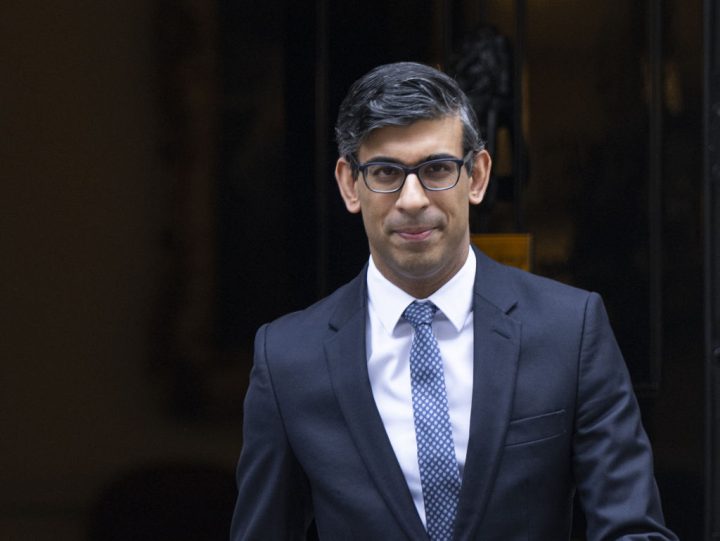When Boris Johnson nailed the Tories’ environmental colours to the mast a few years ago, he probably gained votes from a few waverers. Was it worth it? Almost certainly not. The point he missed was that promises of that sort regularly come back to bite the people that make them. The commitment to net zero by 2050 and no fossil fuel-powered cars after 2035 is a case in point.
This pledge made little account of whether or not the technology will actually be up to scratch by then. Nor did it properly consider the question of if we can afford it, or indeed have assured access to the raw materials necessary to apply it. Yet still the political green lobby continues to exercise a disproportionate influence over the government. Last year, the Tories were bounced into slamming the brakes on fracking, despite the increasing need for varied sources of home-grown energy. Now, however, it is the turn of the private sector to apply the thumbscrews.
Net zero by 2050, or any fixed date, is stone dead. Green future – to be encouraged, by all means
A few days ago, a consortium of companies in the field of green energy – feeling the pinch from increased costs and diminished profitability – took full advantage of the government’s bind. They told the Chancellor bluntly to cut back on the government’s plans to levy a windfall tax on their profits in order to balance the nation’s books. If he refused to comply, they warned, they could not be held responsible if they scaled back their green investments in the UK and imperilled the government’s commitment to 2050 net zero.
The green energy companies admittedly have a case: unlike oil and gas producers, who can deduct direct capital investment from their windfall impost, they get no such rebate. The signatories of the letter to the Chancellor include Norwegian Statkraft, Danish Ørsted and French EDF. Nevertheless, whoever is right, it is worrying that a group of foreign-owned multinationals should be effectively holding the British government to ransom over its taxation plans.
What should Hunt (and therefore Rishi) do? He could graciously give in, as low-tax evangelists and pressure groups like the IEA constantly whisper in his ear, and promote the UK as a low-tax economy with its wind farms open to the world to buy and run. But this would be risky, not only for the still-shaky finances of GB Plc, but also for the credibility of the government when confronted with outside pressure.
Besides, there is a simpler way out. This is an ideal time for Sunak to announce something much more eye-catching: that net zero by 2050, or any fixed date, is stone dead. A Green future should be encouraged by all means. But from now on this means pragmatism and caution: time limits and fixed timetables are out. Such an idea might sound drastic and risky. But if properly managed, it has big attractions.
For one thing, net zero by 2050 is probably already dead, so Sunak would simply be saying now what we would have had to admit in the future anyway. The technology is still feeling its way: currently expensive and uncertain, will it be reliable or affordable in just over 25 years? Possibly, but we just don’t know. And if it isn’t, then the whole pipe-dream collapses. Democracy will see to that.
True, ordinary voters regularly reassure pollsters that climate change is an important priority for them (who wouldn’t?). But that is beside the point. Unlike well-heeled Londoners, they will not willingly ditch a reliable petrol runabout for a much dearer and less convenient electric car, nor yet shell out thousands they cannot afford for a heat pump which cannot be guaranteed to replicate the boiler they know and can pay for. Any party campaigning on a policy of forcing these policies on the just-about-managing now, rather than in some hazy future, will have no chance whatever.
Furthermore, others elsewhere realise this too. Have a look at Europe (not even mentioning India or China). The EU theoretically has similar targets to the UK: nevertheless the idea of Poland or Hungary actually ditching fossil fuels any time soon is fairly fanciful. Only last weekend the dreamers in the Commission and the European Parliament got a nasty jolt when car-mad Germany and Italy essentially kicked their plans for eliminating petrol-powered cars into the long grass. Sooner or later Brussels, like the British government, will have to admit this.
More to the point, the political omens are good for Sunak to grasp the nettle now. Voters know perfectly well about the uncertainty caused by Ukraine; they worry about the need to keep the lights on, the heating humming, and themselves in work. A frank admission that the government thinks in the same way – fossil or non-fossil, net zero when we can manage it but not before – is likely to go down well. Further, quite apart from blindsiding the energy companies by calling their bluff, Sunak’s own standing would benefit a lot from a clear indication that he won’t be browbeaten by international capital when it comes to deciding what he sees as best for Britain. True, the environmental Spartans will be very unhappy. But then few, if any of them, have any love for the PM anyway.
As a bonus, all this would leave Labour nicely wrongfooted. Once the truth was out, Sir Keir Starmer would face an unattractive choice: either insist to an increasingly sceptical public that whatever the present state of the technology it can have net zero in 2050 without walking over an economic cliff, or say that it must do it anyway as a matter of showing the UK’s sea-green incorruptible virtue. Neither is nice, and neither, one suspects, will attract the electorate. This is Rishi’s chance.






Comments